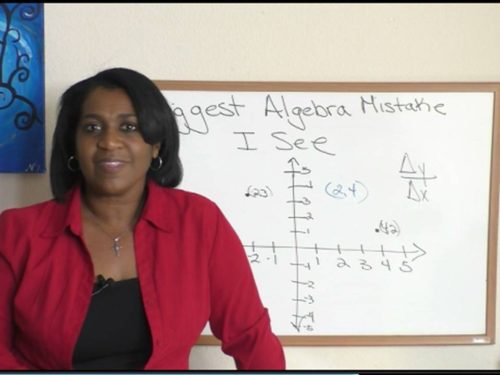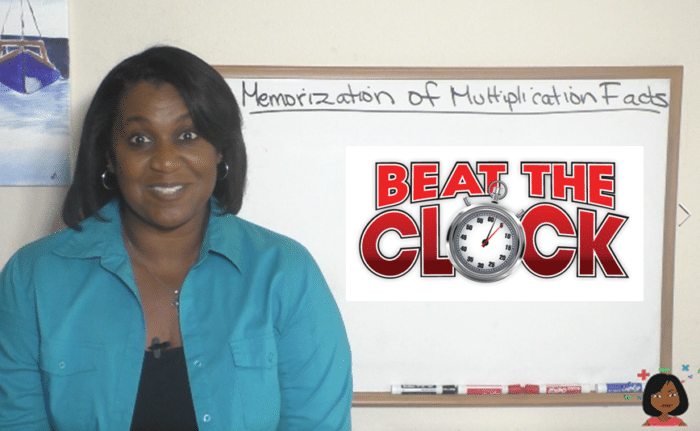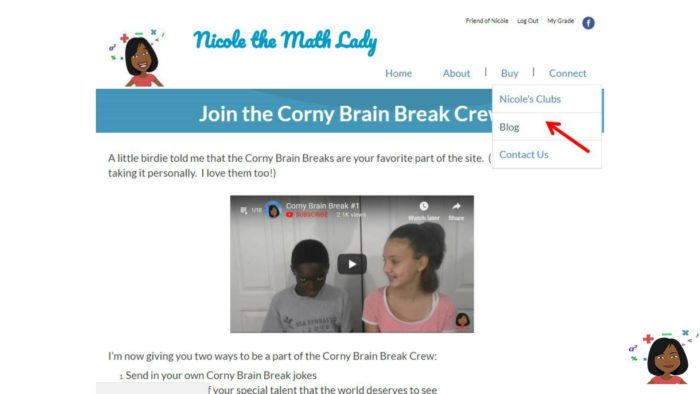It’s already FEBRUARY, y’all.
I don’t know about you, but in the new year, I start to freak out a little. We’re already halfway through the school year and I get that nagging feeling that we’re behind. (Of course, I always say to myself, “You’re NOT behind…your kid is where they’re at…and that’s exactly where they should be.” But then that nasty little Gen X voice filled with sarcasm, snickers at me and says, “Yeah right…you keep believing that sister!”)
By February, I’m wondering if I was really cut out for this homeschooling thing, and in March, I’m ready to send my kid back to school and run away to Fiji. And to top it off, I already have to start thinking about choosing the curriculum for next year. AARGH!!! (Well…at least I know what I’m going to do for math.)
I have this sneaky feeling I may not be alone here.
And then these kiddos, sensing a break in my reserve, start asking questions like “Why do I even need to learn this anyway? When am I ever going to use this in my life?”
Now I start to sweat a little because I know, when it comes to math and some of the more advanced concepts, they may have a point.
I learned the hard way responding with “because I said so!” doesn’t get me very far. So I took some time to finally sit down and make this list:
33 Reasons Why You Really Want To (or at least Understand Why You Should) Learn Math

Here we go:
- To build logic skills. There is a process involved in just about anything: cooking, building, creating, and planning. This is true for business people as well as firefighters, teachers, plumbers, and even YouTube stars. Math builds up the pathways in your brain to allow planning and following processes.
- To train your brain to visualize items in a space. Will all your clothes fit in that suitcase or those books on your shelf? How far do you have to jump into the pool to maximize the splash on your dad (without landing on his head)?
- To connect the left and right sides of your brain to make full use of your mental capacities (not just for math). It’s like personal training for your brain!
- To amaze your friends when you can figure out the answer to the latest math puzzle because you’ve practiced how to think.
- To know how to keep a budget to save up for the latest video game, a night out with your friends, a car, or (someday) a swanky vacation.
- To make sure your employer is paying you correctly.
- To tip your restaurant server, determine the price of a sale item, or calculate tax.
- To decide between cell phone, insurance, and car or house payment plans (or any number of other incomes or expenses).
- To recognize the relationships between quantities. How will your monthly budget be affected if you stop eating out every night? What is a carbon footprint, and how is it calculated?
- To double, triple, or halve a recipe.
- To judge (correctly!) how much paint you’ll need for a wall, whether you can afford that apartment, what your car payment will be, or how many sticks of butter you’ll need to whip up six batches of your favorite recipe for the neighborhood potluck.
- To find and measure mathematical patterns in daily life and be able to create formulas to make those calculations easier. How much fabric will be needed to make that costume? What is the earned-run average of those baseball players, and whose is the best?
- To observe the space around you and how all the shapes fit in. Yes, that new cabinet will fit in your room, but will it fit through the door, block a window, or touch the ceiling? Will you be able to make a gnarly jump on your skateboard with that particular ramp?
- To figure out how GPS works, and understand why it might not be working.
- To be able to measure the height of a building, tree, or mountain. And to understand how sundials work!
- To be able to beat your sibling at the game Perfection, or to plan how to get your 8 ball in the corner pocket in a game of pool.
- To wonder at the fact that you can precisely measure something as enigmatical as a curve, or the volume of a building, or the aerodynamics of a rocketship.
- To appreciate that the Egyptians built the pyramids without computers, calculus, or even a calculator. You can always admire the beauty and longevity of their construction, but to truly understand the miracle, you have to understand math (and physics, but that’s a different list).
- To understand why Notre Dame has arches, why roofs are made with triangular trusses, and why bicycle wheels have spokes (there’s a lot of physics here, too… remember everything you study is intertwined!)
- To marvel at (and comprehend!) the shapes found in nature: beehive walls, flower petals in a Fibonacci sequence (do you know what that is? Go look it up!), and the aerodynamics of a bird.
- To help make sense of music and sound, which are made of sound waves, which are curves, which are–you guessed it!–mathematical!
- To better understand perspective in art, and why that weird geometric painting looks like it’s 3D.
- To appreciate camera angles in movies and photography. And to improve your selfies!
- To relate to computer games. Believe it or not, your high-graphics games use a TON of math to determine scene layouts, character movements, and (of course) scoring. Do you really want Mario to be smarter than you?
- To learn how formulas work and to know how to use them. There’s a formula to determine how much you’ll pay in taxes, how much interest there will be on a loan, to calculate your GPA, to calculate how long that road trip with your best friend will take.
- To be able to answer all the questions of a particular type at one time, with one formula. If your student (or car, or house, or yacht) loan is for a certain amount, and the interest rate is calculated yearly, but you pay monthly, how much will you be paying a month?
- To use statistics in daily life: what is the probability that you will win the lottery? Get hit by lightning? Why are those important? What does it mean that the college you want to attend has a graduation rate of 85%?
- To be better at your job (almost any job!), and more marketable to future employers. You may not see yourself needing higher math skills in the future, but having those skills makes you a better employee.
- To know how to use formulas in spreadsheets, which can be used to collect and interpret data, track a budget, calculate your GPA, and create graphs, among many other things.
- To impress people with your knowledge of spreadsheets.
- To get that great feeling of satisfaction when you solve an equation or are able to figure out a problem by using math.
- To serve as one of the first steps toward becoming a doctor, scientist, engineer, or statistician (or any number of other well-paying jobs).
- To achieve a high score on the SAT or ACT if higher education is your goal (yeah, it’s not a great reason, but it’s a reason!).
I hope one of these hits home with your student. Feel free to print this list and post it in your schoolroom, or if you have another reason, add it in a comment below.
In case no one has told you lately, you are amazing! Keep on truckin’ through the spring.
Nicole the Math Lady




cool
never thought about that
My husband and I made our four children learn how to count back change. As in the “really old fashioned way” of stating the sale’s total and then adding the change as placed in the hand until the counter reaches the total amount given. “$2.25 and 25 makes 50, 50 makes $3 and 1, 2, makes $5.”
Kids: why?! No one uses cash anymore!
Us: Let’s make this into a game involving a chance to earn chocolate – and call it “After Dinner Math!”
Kids: Yay!! Chocolate on a non-dessert night! Awesome!!
Fast forward three or four years….
Our 15 year old daughter had an interview today at a local pharmacy. They asked if she had experience with a cash register. She said, “yes, sort of. I’ve volunteered at the local soccer concession stand and am really good at counting back change.” Her potential employer was VERY happy and impressed!! “We love to hire people who can actually count back change!”
Reason #34: When you’re young and you don’t have much job experience, having a good grasp of math can set you apart from the crowd during your first job interview.
I absolutely love this. I remember watching cashiers do this when I was a kid and I was so confused. Then I finally learned how to do it. And you involved chocolate!!!! I want to move into your house.
love the list it makes things so much more easier.
Love this list!
Now if we only taught math in a practical a way as we’re supposed to use it.
great idea for a curriculum!
Thank you for this list, I’ll be sharing it with my kids. You don’t really appreciate math until you’re out in the world, for sure.
So true!
Wow. Never thought about it like that.
So life changing. Lol
😂
Love it! You also need math to drive! Also if you travel other countries studying there measuring systems and comparing to ours.
yes, yes, yes…consider it added to the list!
I feel the same way Nicole, when it gets to the second half of the year I always tell myself we’re behind!!!!
Thank you so much. I read these to my kids and I think we all gained a greater knowledge of why we need math!
Awesome to hear!!!
My daughter asked the dreaded question the night before your post landed in my inbox. I chuckled when I saw the title and was encouraged by the list. Though, Fijii does sound mighty nice.
Right!
wow! that is a lot to remeber. but i think i can remember
That is really interesting! I never thought about math that way! I really will enjoy math a lot more!
cool!!!
Yes I definitlely feel satisfied when I get a problem correct!!!!! Thank u Nicole!!!!!